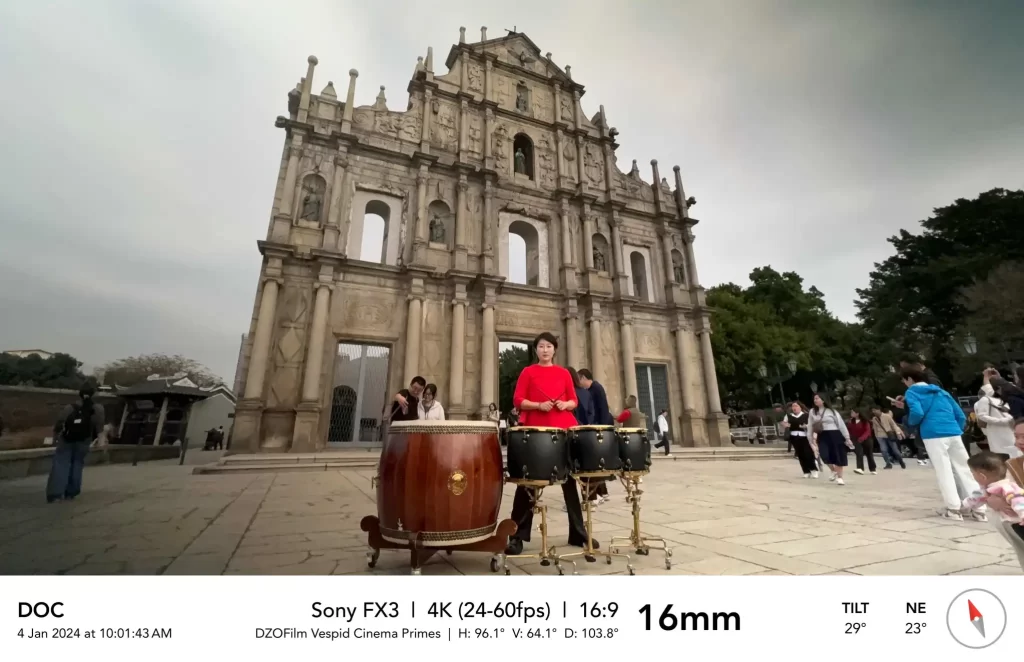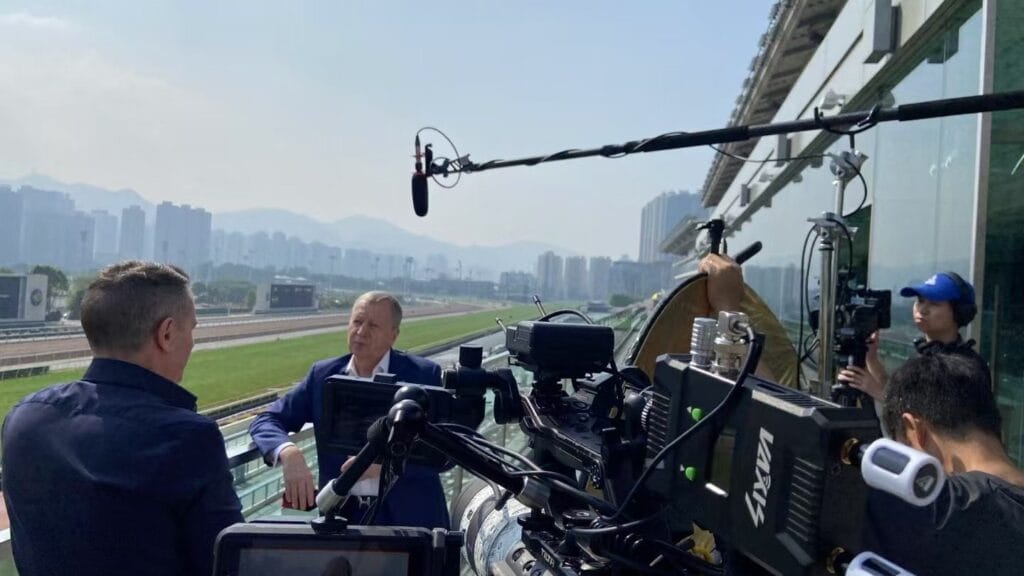
a music video project at Macau for CGTN, 2024
Introduction
Hong Kong and Macau are two of the most visually striking and culturally rich locations for filmmaking in Asia. From the neon-lit skyline of Hong Kong to the European-influenced streets of Macau, these cities offer unique backdrops for commercial, documentary, and feature film productions. However, while they are more accessible than mainland China in terms of regulations and infrastructure, foreign filmmakers still face various challenges when shooting in these regions. Understanding these obstacles in advance can help ensure a smooth production.
1. Permits and Regulations
Unlike mainland China, Hong Kong and Macau have relatively relaxed filming regulations. However, certain restrictions and bureaucratic processes can still cause delays.
Public Filming Permits: While small productions with handheld cameras may not require a permit, larger shoots, especially those involving tripods, drones, or street closures, typically need approval from the relevant authorities (e.g., the Film Services Office in Hong Kong).
Private Locations: Many high-profile areas, such as malls, office buildings, and some heritage sites, require direct permission from property owners or government offices.
Drone Restrictions: Hong Kong has strict drone laws, requiring registration and certification for commercial drone usage. Macau has even more stringent restrictions, with many areas completely off-limits to drones.
Solution: Work with a local fixer or production company that understands the permit process and can secure approvals efficiently.
![]() Corporate Production for TMS Design, Hong Kong, 2023
Corporate Production for TMS Design, Hong Kong, 2023
2. Crowded and Limited Filming Spaces
Hong Kong and Macau are densely populated, making it challenging to secure quiet and open spaces for filming.
Hong Kong’s Congested Streets: The city’s compact urban layout means that finding a filming location without foot traffic interruptions is difficult.
Macau’s Tourist Hotspots: As a major tourist destination, Macau’s scenic spots—like Senado Square and the Ruins of St. Paul’s—are often packed with visitors, making controlled filming complicated.
Solution: Plan shoots during off-peak hours, secure necessary permits for crowd control, and consider using private locations when possible.
3. Weather and Unpredictable Conditions
The subtropical climate of Hong Kong and Macau means filmmakers must be prepared for sudden weather changes.
Humidity and Heat: Summers can be extremely humid, causing challenges for both crew and equipment.
Typhoon Season: From May to October, typhoons can disrupt production schedules, causing delays or cancellations.
Fog and Air Pollution: During certain times of the year, heavy fog can obscure skyline shots, and air quality fluctuations may affect outdoor shoots.
Solution: Monitor weather forecasts closely, have contingency plans for indoor locations, and schedule buffer days in case of delays.
4. High Production Costs
While Hong Kong and Macau offer world-class facilities, production costs can be significantly higher than in mainland China.
Crew and Talent Fees: Local crew rates tend to be more expensive due to the high cost of living.
Location Fees: Renting private locations, especially in premium districts, can be costly.
Accommodation and Transport: Hotels and transportation costs add up quickly, especially for extended shoots.
Solution: Budget carefully, hire a local fixer to negotiate better rates, and consider sourcing some crew and services from neighboring cities like Shenzhen for cost efficiency.

Documentary Productions for TVNZ, Hong Kong, 2024
5. Language and Cultural Barriers
While English is widely spoken in Hong Kong, Macau primarily uses Cantonese and Portuguese, which may pose a challenge when dealing with local vendors and authorities.
Technical and Legal Documents: Many permit applications and official documents are in Chinese or Portuguese.
Cultural Nuances: Business etiquette and negotiation styles differ from Western norms, and understanding local expectations can impact production efficiency.
Solution: Have a bilingual production coordinator or fixer to handle communication and documentation.
6. Limited Equipment Availability in Macau
While Hong Kong has a well-established film industry with access to top-tier rental houses, Macau has more limited options.
Importing Equipment: Macau has fewer rental facilities, so productions often need to bring gear from Hong Kong or mainland China.
Customs Considerations: Moving equipment between these regions may involve customs declarations and import taxes.
Solution: Plan ahead for equipment rentals in Hong Kong and arrange proper transport for gear into Macau.
7. Bureaucratic Hurdles and Political Sensitivities
Although Hong Kong and Macau operate under the “One Country, Two Systems” framework, political sensitivities can still impact film production.
Censorship Concerns: While regulations are looser than in mainland China, politically sensitive topics may still face scrutiny, particularly for distribution.
Visa and Work Permits: Foreign crews may need the proper work permits depending on the nature and length of the production.
Solution: Avoid politically sensitive topics unless fully aware of the implications, and ensure all crew members have the appropriate visas.
Conclusion
Filming in Hong Kong and Macau presents unique opportunities but also comes with its share of challenges, from navigating permits and dealing with high costs to managing unpredictable weather and crowded locations. However, with proper planning, local support, and flexibility, filmmakers can successfully capture the stunning visuals and dynamic energy these cities offer.
If you’re planning a production in Hong Kong or Macau, partnering with experienced local fixers and production teams can make all the difference in ensuring a seamless and efficient shoot.
FAQs on Video Production in China

Chinese video production companies offer extensive local expertise, cost-effective solutions, and high-quality production services. They understand the market dynamics, local regulations, and cultural nuances, ensuring a smooth production process.

A reliable China video fixer should have a strong network, experience with international productions, and knowledge of permits, logistics, and local crew coordination. It’s best to work with established production coordinators who have a proven track record in managing foreign shoots.

When choosing a Chinese video production company, consider their experience, portfolio, communication skills, language capabilities, and familiarity with both domestic and international production standards.

A China video production coordinator assists with pre-production planning, location scouting, securing permits, hiring local crew, renting equipment, and managing logistics, ensuring a seamless production experience.

Corporate video production in China requires an understanding of local business etiquette, branding strategies, and industry-specific messaging. It’s crucial to work with a team that can navigate cultural sensitivities while delivering compelling visual storytelling.

To streamline post-production, use cloud-based file-sharing platforms compatible with China’s internet infrastructure. Ensure clear communication regarding editing styles, revisions, and final delivery formats.
Would you like more tailored advice on your upcoming video production project in China?
